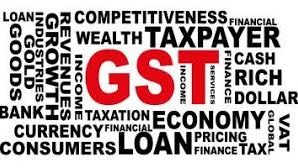Goods and Services Tax
Goods and Services Tax (India) is a comprehensive indirect tax on manufacture, sale and consumption of goods and services throughout India to replace taxes levied by the central and state governments. It was introduced as The Constitution (One Hundred and First Amendment) Act 2016, following the passage of Constitution 101st Amendment Bill. The GST is governed by GST Council and its Chairman is Union Finance Minister of India – Arun Jaitley.This method allows GST-registered businesses to claim tax credit to the value of GST they paid on purchase of goods or services as part of their normal commercial activity. Administrative responsibility would generally rest with a single authority to levy tax on goods and services. Exports would be considered as zero-rated supply and imports would be levied the same taxes as domestic goods and services adhering to the destination principle in addition to the Customs Duty which will not be subsumed in the GST.Introduction of Goods and Services Tax (GST) is a significant step in the reform of indirect taxation in India. Amalgamating several Central and State taxes into a single tax would mitigate cascading or double taxation, facilitating a common national market. The simplicity of the tax should lead to easier administration and enforcement. From the consumer point of view, the biggest advantage would be in terms of a reduction in the overall tax burden on goods, which is currently estimated at 25%-30%, free movement of goods from one state to another without stopping at state borders for hours for payment of state tax or entry tax and reduction in paperwork to a large extent.

